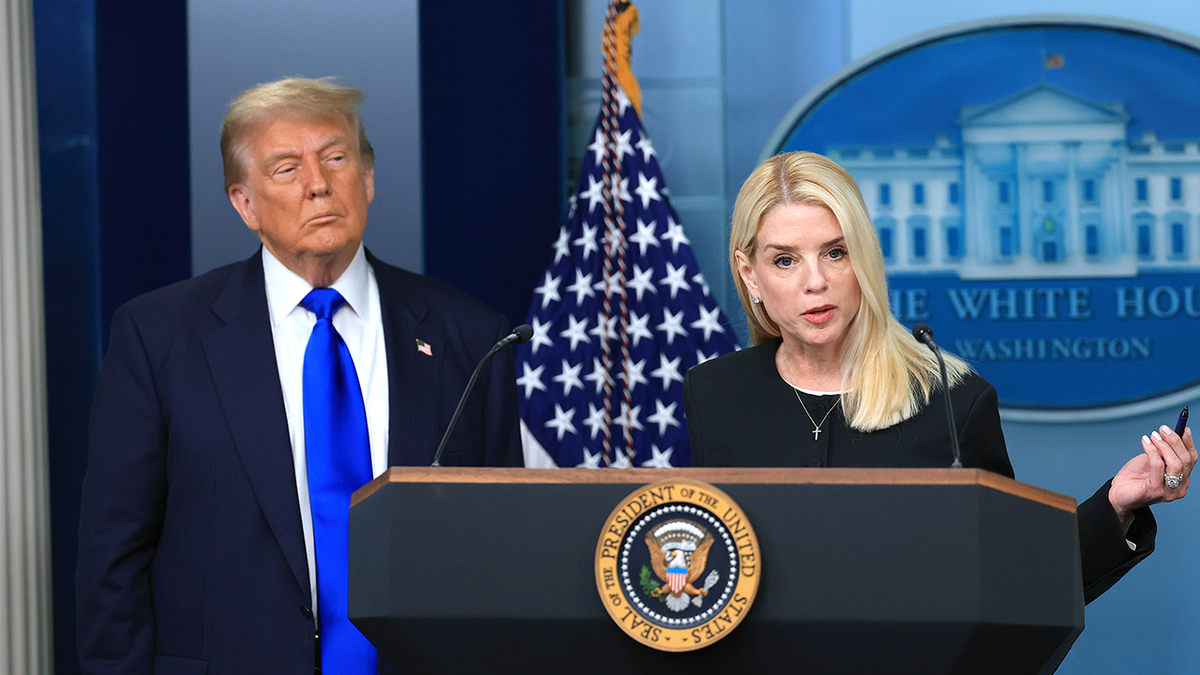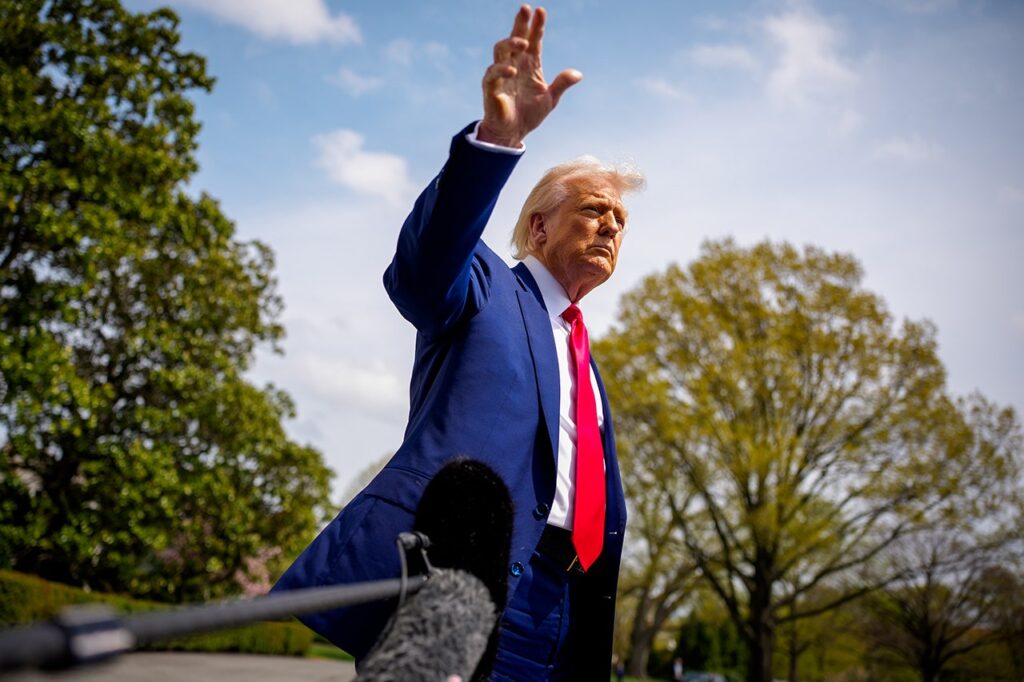NEWYou can now listen to Fox News articles!
A federal appeals court on Thursday will hear arguments over the legality of President Donald Trump‘s sweeping tariff plan, a high-stakes court fight that comes just hours before Trump’s import duties and so-called “reciprocal” tariffs are slated to take force.
At issue before the Washington-based Court of Appeals for the Federal Circuit is Trump’s attempt to use the International Emergency Economic Powers Act (IEEPA) — a 1977 emergency law — to enact the steep import fees, and impose additional tariffs on certain trading partners.
Thursday’s hearing comes less than 24 hours before Trump’s tariffs are slated to take force. Both sides have signaled they plan to appeal the ruling to the Supreme Court, if necessary.
On April 2, Trump announced a 10% baseline tariff on all countries, along with higher, reciprocal tariffs targeting select nations — including China. He said the measures would address trade imbalances, reduce deficits with key trading partners and boost domestic manufacturing and production.
TARIFF FIGHT ESCALATES AS TRUMP APPEALS SECOND COURT LOSS
However, whether emergency tariffs are the appropriate vehicle to accomplish this is an open question and one central to Thursday’s oral arguments before the appeals court.
Plaintiffs in V.O.S. Selections Inc. v. Trump will argue on Thursday that the looming tariffs have already introduced confusion and volatility into markets, threatening the bottom lines of small U.S. businesses and making it extremely difficult for owners to operate under shifting guidance that seems to change on a whim.
Small businesses in the U.S. have been hit with months of “complete uncertainty,” Jeffrey Schwab, senior counsel and director of litigation of the Liberty Justice Center, one of the groups representing small businesses in court, said in an interview Wednesday.
“That’s largely due to the fact that the president asserts the power to impose tariffs on any country he wants, for any reason — and at any rate he wants, at any time he wants,” Schwab said.
“So there’s no certainty on what the rate is going to be from one week to the next, and that’s very difficult to do business with, when things are constantly changing.”
Judges on a three-judge panel for the U.S. Court of International Trade voted unanimously to block Trump’s tariffs from taking force earlier this year, ruling that, as commander in chief, Trump does not have “unbounded authority” to impose tariffs under the emergency law.
That ruling was later paused by the appeals court in Washington, D.C., which agreed to consider the administration’s request for relief.
Ahead of Thursday’s oral arguments, U.S. Attorney General Pam Bondi vowed they would continue to defend the president’s trade agenda in court.
“This morning, [Justice Department] attorneys are going to court to defend President Trump’s tariffs — which are transforming the global economy, protecting our national security, and addressing the consequences of our exploding trade deficit,” she said. “We will continue to defend the president.”
TRUMP TARIFF PLAN FACES UNCERTAIN FUTURE AS COURT BATTLES INTENSIFY

Others argue that the tariffs are more a negotiating tool designed to bring trading partners to the table to negotiate new deals.
JUDGES V TRUMP: HERE ARE THE KEY COURT BATTLES HALTING THE WHITE HOUSE AGENDA
Despite trade adviser Peter Navarro’s pledge to strike “90 trade agreements in 90 days,” and Trump’s assertion to Time magazine that they had struck “over 200 deals” this year, the Trump administration has in fact inked just eight such agreements over the last 120 days.
The agreements announced by the U.S. include deals with the European Union’s 27-member bloc, the United Kingdom, South Korea, Japan and others.
The U.S. and China, which threatened each other with escalating reciprocal tariffs that climbed as high as 145%, agreed at a meeting in Geneva in May to lower tariffs through at least mid-August. Talks for a longer-term deal are ongoing.
Some Trump supporters have argued the tariffs are merely a negotiating tactic to get foreign governments to the table — though the administration has repeatedly vowed to use “all tools” at their disposal to advance
They argued in a court filing that the IEEPA is the law that Congress passed in 1977 to allow the president to respond to “unusual and extraordinary threats” and in cases where a national emergency has already been declared.
However, plaintiffs argue that Trump’s use of IEEPA to address the trade deficit is unlawful, pointing out that, by the administration’s own admission, the deficit has persisted for nearly 50 years, undermining the claim of an “unusual and extraordinary” emergency.
The Court of Appeals for the Federal Circuit will likely move on the case quickly, with a decision expected in August. No matter the outcome, both sides have vowed to take the fight to the Supreme Court, if necessary.
In the interim, economists noted there could be real harm the longer the court process takes.
Schwab, the lawyer helping represent plaintiffs in court Thursday, said small business owners could see “potentially irreparable harm” as a result of court inaction. Already, he said Wednesday, his clients are reporting real harm.
“Some of the harm has already taken place,” Schwab said in an earlier interview. “And the longer it goes on, the worse it is.”
Read the full article here

